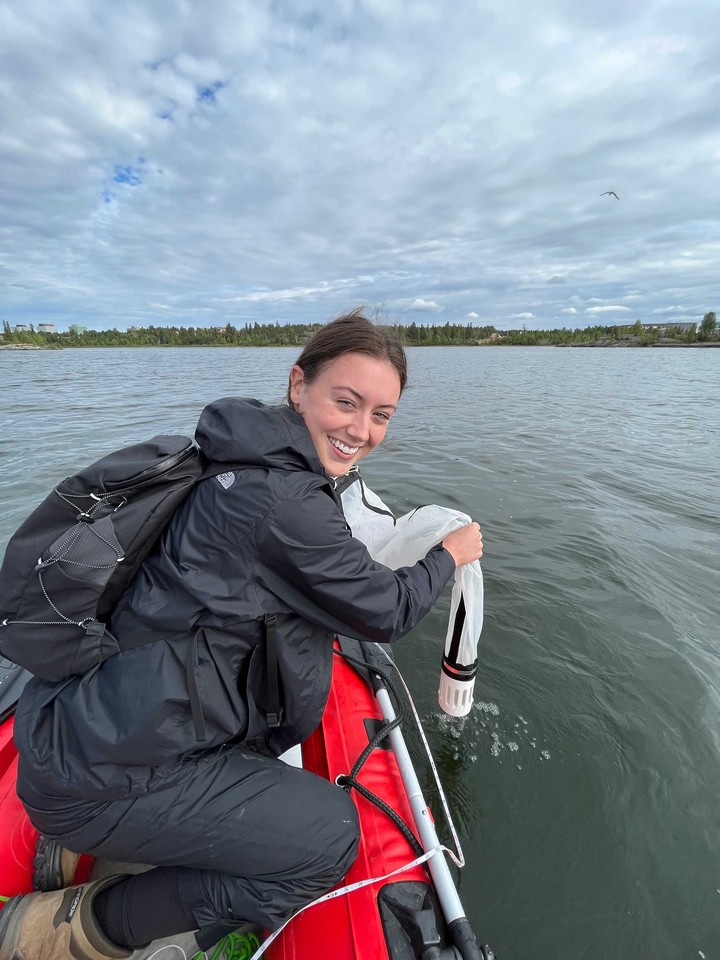Madeline Patenall (Honours thesis, 2023)
 Madeline collecting zooplankton on Frame Lake
Madeline collecting zooplankton on Frame Lake
Project description: Urbanization has altered terrestrial and aquatic habitats across Canada’s north. Frame Lake in Yellowknife, Northwest Territories is an excellent example of a northern lake affected by poor urban planning. Development of the lake catchment has contributed to the lake’s eutrophication and low dissolved oxygen levels, resulting in the loss of fish. Hypolimnetic aeration has been proposed as a rehabilitation method for Frame Lake; however, baseline data must be collected prior to the installation of the aerator to determine its effectiveness. We examined the seasonal variation of water quality and rotifer community metrics in Frame Lake. Our findings indicate that water quality metrics exhibit seasonal fluctuations that may be influenced by various factors, including ice cover development, mixing patterns, dissolved oxygen concentrations, internal loading, and anthropogenic factors such as road salts. Moreover, we provide insights into the seasonal dynamics and succession of rotifer communities in Canadian subarctic lakes, highlighting correlations with water quality variables. Our study generates novel high-frequency, multi-season baseline water quality and rotifer community data from an urbanized northern lake. Our study can inform future research assessing Frame Lake’s rehabilitation and the efficacy of hypolimnetic aeration as a rehabilitation strategy. Given the increasing impact of urbanization on lakes across Canada’s north, the assessment of hypolimnetic aeration as a rehabilitation strategy is particularly relevant.
Associated projects: Rehabilitation of Frame Lake